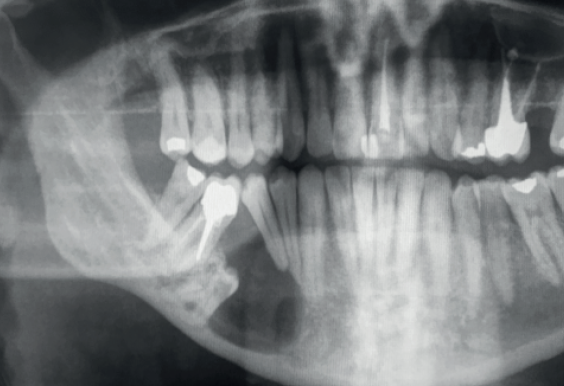6 false beliefs about dental implants
Today, many people still have their doubts or take for granted some completely false statements.
Dental implantology procedures have been used for over 35 years and have proven to be an effective method of replacing missing teeth. However, today many people still have their doubts or take for granted some completely false statements because there are certain myths or hoaxes around these that could mitigate the confidence in this treatment and truncate the expectations.
1. Implants... for a lifetime
The general estimate of the duration of implants is different for each patient, and there is no known expiration date. However, implants are not exempt from suffering diseases, being a higher risk of failure or complications in patients with undiagnosed and/or untreated periodontitis, in patients who smoke, and in those unable to maintain adequate oral hygiene. For people who smoke, are diabetic, or have other health problems, this duration may be significantly reduced. And, of course, poor dental hygiene will lead to infections that will also affect the lifespan of these implants.
Treatment and control of periodontal disease before implant placement minimizes the risk of bone loss around implants. People who have received periodontal therapy and have been introduced to a maintenance program have fewer implant complications.
2. No need to take care of them
They should be cared for like natural teeth, maintaining proper oral hygiene to prevent them from becoming infected, leading to diseases such as mucositis or peri-implant. It is necessary to apply appropriate oral cleaning and follow periodical periodontal and implantological control and maintenance visits. Risk factors such as smoking, certain systemic diseases, and periodontal disease should be monitored during visits to the specialist. Patients should be evaluated at regular intervals to monitor the condition of their peri-implant tissues. It is also necessary to review oral hygiene practices' effectiveness and eliminate visible and non-visible bacterial deposits (located below the gum). It is essential to periodically check the condition of the prostheses, their adjustment, and the need for repair, and to study how easy they are to sanitize.
Any treatment involving implant placement requires that the patient be taught both the importance of daily care and the skills and instruments necessary to maintain proper control of the health of their implants.
3. I'm not old enough to have dental implants anymore
The optimal masticatory function is essential at any age, and dental implants are the best option to replace a tooth. Old age is not a condition or impediment to the placement of implants. The only limitation is the patient's state of health. For this reason, it is essential to take a good medical history. The professional should know the health or disease situation, medication intake, etc., of anyone who opts for implant treatment.
There is, however, the minimum age for the indication of an implant therapy: it is from 18-21 years of age when it is estimated that the period of bone growth has ended, so it is advisable to delay this type of therapeutic solution at least to the age of majority, although it is essential to be assessed individually.
4. The placement of an implant is an excruciating process.
It is a complex treatment but not painful since it is performed under local anesthesia, or it can be accompanied by assisted sedation if the case's complexity requires it. The implants can be placed in outpatient surgeries of short duration, under the effect of local anesthesia, and recovery is usually fast if all the indications of the specialist are met. The postoperative period is not particularly painful or uncomfortable. Each case is different, so the professional will establish the optimal medication for the patient's comfort during the first days after surgery.
5. Any dentist can place implants
The dental professional who places the implants must be trained in implant surgery and have the necessary knowledge, skills, and experience handling complex soft tissues (i.e., bone and gum). Sometimes more complex treatments, such as bone regeneration procedures and gum grafts, are necessary to achieve the optimum result with implants. The specialist must also assess the need for prior gum treatment or simultaneous treatment with other types of treatment (prosthetic, rehabilitative, orthodontic, and occlusal) that favor the successful completion of the implant treatment; and must also know how to act on the face of the risk factors that the patient may present.
6. It is rare, but some clinics do these treatments at a reasonable price.
The price difference in implant treatment between clinics lies not only in the different needs of each patient and the law of supply and demand itself but also in the diagnosis and treatment plan performed and the materials used. In implant therapy, cheap can be very expensive.

